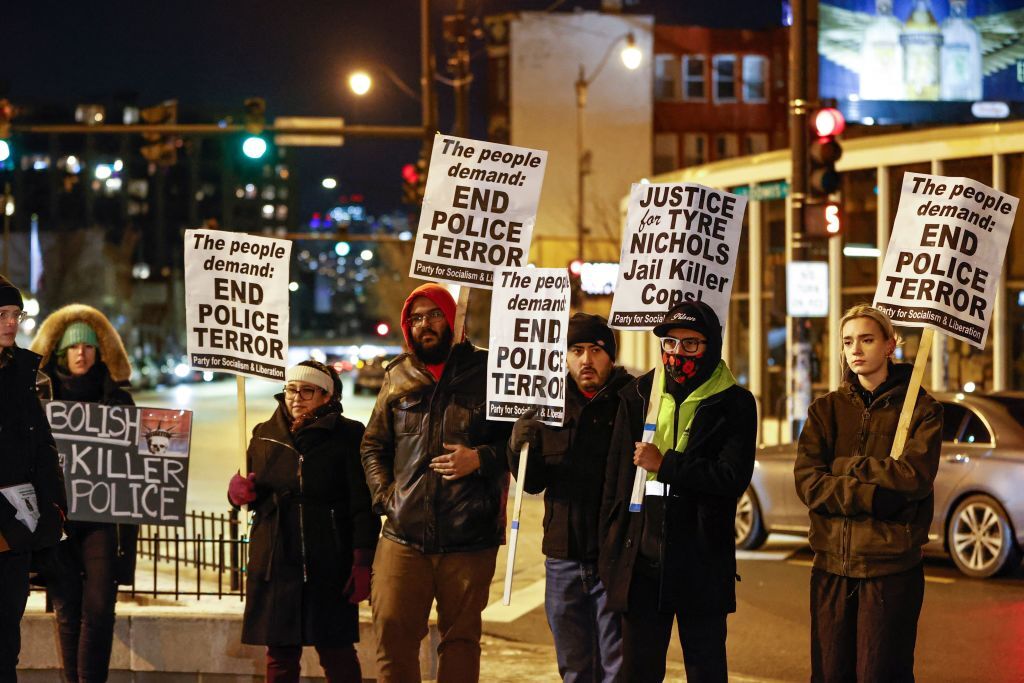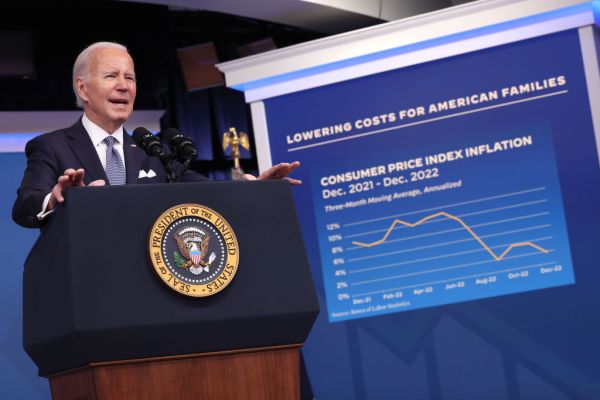Dear Reader (excluding any of you who confuse the “Champagne of Beers” with the real bubbly stuff),
I haven’t had a good week writing-wise. I didn’t like the Wednesday G-File. I didn’t like my Los Angeles Times column. And while I liked what I tried to write on the bathroom wall AEI, my Sharpie ran out of ink.
Now it’s Friday, the New Year’s Eve of workdays, and I just got off the Acela and am sitting in my car, smoking a cigar and watching a pigeon carry twigs and twine to what I assume is its nest in some kind of duct above a window in the Union Station garage.
One of my dad’s favorite questions involved pigeons. When we would go on walks, he’d point to one pigeon among other pigeons. Then he’d ask (little kid) me, “Jonah, do you think that pigeon knows he’s not that other pigeon?”
He was both serious and joking. He definitely thought it was a philosophically interesting question (Ontology! Epistemology!), but he also thought it was funny to ask me stuff like that.
I don’t bring this up just because I have pigeons on my mind. I asked my Dispatch colleagues in our internal Slack for ideas for G-File topics and the only one of them who didn’t fail me was Ryan Brown—who asked me to give “full out-of-the-box parenting advice.” Ryan’s got a new baby—I mean, it’s his baby—and she’s inordinately cute.
I don’t have it in me to write a whole “news”letter on that today, but it did get me thinking about parenting, specifically how my parents parented me. I’m thinking a lot about such stuff these days for all sorts of reasons. (My mom didn’t want a funeral, but she wanted a party. And now that I’m somewhat emotionally ready, I’m throwing her one next weekend on what would have been her 88th birthday.)
I’ve never really thought about it this way before, but I think one of the core beliefs my parents shared was in the importance of normalcy where normalcy was necessary. I guess I have to explain this. My mom was not a normal woman. She was a mischief maker, risk taker, and mold breaker. She was, in her professional and social life, more of a real feminist than many professional feminists—whom she often debated. But while she was an abnormal woman, she was a passionately normal mom (most of the time). What I mean is, she thought it was important to be there for her kids and do conventional, traditional mom stuff. Don’t get me wrong. She also wanted to be a cool mom, which is why she gave us rides on her police horse in Central Park, among other things.
My dad was, well … my dad was the strangest mix of normal and abnormal. He was a Hop Bird. He worked hard. He cared enormously about modeling integrity, though he’d never use a phrase like that. He was less of a traditional dad in the sense that if you gave him a tool more complicated than a hammer he’d probably have to read the instructions. He didn’t care about sports. One time, while in college, he attended a football game at the University of Michigan with my uncle. One of the Wolverines got spun around and accidentally ran the ball the wrong way to his own end zone. According to my uncle, my dad was the only Michigan “fan” who stood up and cheered because he didn’t realize what was happening.
But they both believed in not just the moral authority of normalcy, but the practical necessity of it. And what I mean by that is pretty much everything good—and maybe a few things that are bad—about normalcy. When I was young and worked up about some injustice or unfairness or some other problem, my dad would drive me crazy by saying, “Jonah, that’s normal.”
No! Like so many young people, I wanted my problems or desires to be special, unique, world-historic in some way.
“No,” he’d explain. Young people are always in a hurry. Young people always think the dues are too steep, the wait too long, the oldsters too hidebound.
My dad liked philosophy, but he thought most of the usable stuff boiled down to the obvious facts of life. Irving Kristol was one of my intellectual heroes in part because he reminded me so much of my dad. Kristol used to say that neoconservatism could be boiled down to the intellectual or social scientific discovery that most of the things your grandmother told you were not just true, but wise. Or something like that. What he meant is that there are just some basic rules of life, and working within them was the best path to a decent life and, by extrapolation, a decent society.
I guess I have to translate this into parenting advice of some kind before I can move on to my bigger point. Kids crave a sense of normalcy. I think the job of parents is to create a zone of normalcy, by which I mean a realm of not just love, but rules and expectations that prepare them for life outside the borders of your private realm. Having that literal and figurative home base, made being adventurous outside of home easier, in the same way that having a net below you makes it easier to take risks on the highwire.
This is why I love Friedrich Hayek’s concept of the microcosm and the macrocosm. The microcosm of the family has its own rules and expectations. The macrocosm of the larger society has a different set of rules and expectations because in the macrocosm you have to deal not just with strangers, but with people you know and work with but who cannot make the same demands on you that family does.
Your basic gut instincts about what it means to be a good parent are probably right. Indeed, the more you intellectualize parenting, the more likely you are to make mistakes. Yes, kids need “quality time,” but they need quantity time too. They want to be around their parents—at least for a while. They watch their parents to see what is normal. Yes, I like to talk about the horseback ride with my mom when she was a cop. But I probably learned more from going to the grocery store with her.
You don’t have to invent really clever or exotic things to create “bonding experiences” with your kids. The bonding is built in. What matters is what they bond to. The more you act like the kind of person you want your kid to think you are, the more likely they are to become that kind of person when they grow up.
You can’t always be there physically for your kid because life makes other demands on parents, and good parents have to attend to those demands. But kids see that, too. In fact, it’s not a bad rule of thumb to think your kids are watching you even when they’re not around. Obviously, you can take that advice too far. But being the person you want your kids to think you are isn’t just a rule for when they’re literally watching you. If you’re a jackass in the macrocosm, they’re gonna hear about it in the microcosm eventually.
Indeed, the things you choose to do with your time away from your kids sends a message as much as the things you do when you’re with them. Parenting is more about showing than telling.
And if you feel guilty about having to work, don’t freak out about it. Because that’s normal. What you shouldn’t do, in my very humble opinion, is let your kids think you don’t feel guilty about it. Kids want to know how important they are to you and they need to understand that parents sometimes need to do things—like work—precisely because their kids are so important to them.
A return to normalcy.
All right, enough of that for now.
Let’s talk about normal in the macrocosm. I’ve written dozens of times about how you cannot make society like one giant family. The government can’t love you. The government can’t improve your self-worth, it can only improve your net-worth—and it’s not always good at it. Politicians and ideologues of many stripes confuse this all the time. They talk about the president like he’s the nation’s “father,” which implies that we’re all children. This is the logic of monarchism sneaking in through the backdoor of bumper sticker clichés and romanticism.
Radicals arrogantly assume that large groups of people as a “class” share their revolutionary zeal or would share it if “awakened” to the Truth of the Cause. But the truth is most people want to live normal lives. Not of “quiet desperation” as Thoreau claimed, but normal lives in the sense of living decently, safely, and with a reasonable expectation that their kids will be able to do likewise. The desire for revolution is literally a luxury good. Most revolutionaries aren’t drawn from the ranks of the poor, but from the salons of the upper middle class and the rich. These are the people who see ideas as toys to be played with at other peoples’ expense. These are the people who think other people are living the wrong way. And sometimes, these are the people who think people living the right way are the problem.
President Biden’s Federal Housing Finance Agency has reportedly decided that people with good credit scores should in effect be taxed to subsidize people with bad credit scores. I understand the problem that these bureaucrats want to fix. I was sorely tempted to put “problem” and “fix” in scare quotes. But I think it’s a defensible proposition that helping poorer people who—for both obvious and subtle reasons—have poor credit scores buy homes. But penalizing people with good credit is one of the most perniciously stupid ways of doing that I can think of. Normal people understand that paying your debts and living within your means is good. They think it’s normal that benefits would come with this behavior. Punishing people who work hard and play by the rules in order to reward people who—as a gross generalization—don’t is madness.
You know what else is madness? Acting as if it’s racist to condemn rioting, shoplifting, and looting because the rioters, shoplifters, and looters are black. So is forgiving wanton violence—or even surgical and deliberate violence—as a “protest against poverty” in the words of one Illinois state senator. “I would look at the behavior of young people as a political act and statement. It’s a mass protest against poverty and segregation,” Robert Peters said. Chicago’s mayor-elect insists that it’s “not constructive to demonize youth.” Fair enough. But it’s certainly constructive to condemn demonic behavior.
Of all the pernicious ideas that routinely surface in politics, two are the most inexcusable and intertwined: the idea that inexcusable criminal violence is actually excusable political protest and the idea that political violence isn’t criminal. The kids storming downtown Chicago, wrecking property, and beating people, were criminals, not rebels storming the Winter Palace. Just as the goons who stormed the Capitol weren’t freedom fighters.
Tim Carney nails it when he says the conversations about race and guns—while important and legitimate—are secondary to the real problem: We are becoming a low-trust society. The anti-gun people would argue, correctly, that the prevalence of guns makes the problems of living in a low-trust society worse. But the pro-gun people aren’t fools for wanting to have a gun in a low-trust society.
Progressives talk about “gun violence” like it’s a disease without human agency. Like guns are just floating around killing people when the obvious frickin’ reality is that people are killing people. Charlie Cooke has been arguing for years now that there’s a weird convergence between the pro-gun rights crowd who want to decriminalize gun possession at one end of the debate and the anti-gun progressives who want to decriminalize gun crimes in order to “do something” about mass incarceration. If you don’t prosecute people who actually shoot people illegally, why bother making it illegal to get a gun in the first place?
Anyway, all of this is to say that I’ve lost my patience for people with grandiose ideas for revolutionary this and radical that. We have two parties that have convinced themselves that the solution to all of our problems is eliminating the other party so they can rule—not govern—unobstructed. And any policy that seems like a concession to the other party’s arguments is a non-starter or a moral betrayal. Most Americans like immigrants, but they think they should come here according to the rules. Most Americans consider abortion on demand at any stage of pregnancy to be morally objectionable. But most Americans also think blanket abortion bans are too draconian. Most Americans have sympathy for the poor, but little sympathy for violent criminals, regardless of their motives or their net worth. Most Americans would like the government to do something about the problems in their lives that government is suited to do something about effectively. Normal people can debate what those problems and solutions might be. But our political system punishes normalcy as a kind of heresy.
Both parties have good ideas and bad ideas. And either party could be a majority party in short order if they decided to be the party of normalcy. But they’ve convinced themselves that the trick to winning is to declare that the other party is frighteningly abnormal and therefore they deserve to do whatever the hell they want. And because each party is dominated by extremists who want to impose one vision on the whole country, when they get in power, they end up proving the other party right just long enough to get thrown out. (I should note this isn’t necessarily true of governors. And it’s worth noting that for most of Ron DeSantis’ tenure in office he governed as a friend of normal people. It’s instructive how he’s changed in order to be competitive in the Twitter primary.)
There’s nothing wrong with running on a platform of “not as crazy as the other party.” But that’s really just a strategy for winning the next election and nothing more if, once in power, you govern in a way that makes “not as crazy as the other party” the winning platform for the other guys. I understand why Democrats want to run against MAGA and Republicans want to run against the “woke left.” I don’t like either of them and I think that’s true of most Americans. But not being as bad as the caricature of your enemy is not governing, and it doesn’t do very much for the normal people who just want to get on with their lives in a stable, safe, and decent country.
Various & Sundry
Canine update: So Zoë was sick this week, and because when you’re sick there’s no place you’d rather poop than in my home office, my home office does not smell good. Thankfully, the dingo is feeling better, and resuming her protective work, and my office has had a chance to air out. Meanwhile, Pippa is loving the spring weather and is sharing the bouquet of wet spaniel smell every chance she gets. The exciting dog news this week is that a friend of mine from the dog park got his new puppy, Bear. I think you will agree with me that Bear is almost dangerously adorable. The other morning, I went over to say hi. But I had to leave Zoë in the car. She’s not great with puppies, particularly ones I fawn over. She was not happy about that. She stuck her head out of the dog car and howled at me for my seeming betrayal. The exciting cat news this week is that Gracie caught herself a mouse in the backyard. The old girl still has moves. Unlike Zoë who would kill—and probably swallow—such prey quickly. Gracie played with the poor thing long enough for it to escape. Still, she was immensely proud of herself. And Zoë, who watched the whole thing, looked like a striking union member watching a scab stevedore unload a ship.
ICYMI
And now, the weird stuff









Please note that we at The Dispatch hold ourselves, our work, and our commenters to a higher standard than other places on the internet. We welcome comments that foster genuine debate or discussion—including comments critical of us or our work—but responses that include ad hominem attacks on fellow Dispatch members or are intended to stoke fear and anger may be moderated.
You are currently using a limited time guest pass and do not have access to commenting. Consider subscribing to join the conversation.
With your membership, you only have the ability to comment on The Morning Dispatch articles. Consider upgrading to join the conversation everywhere.